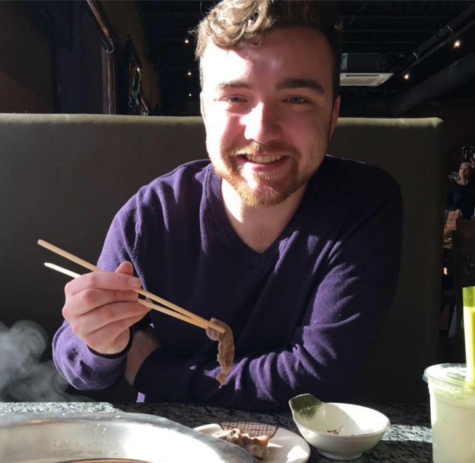By Patrick Holmes
International students make up a large part of the Suffolk community and continue to enrich the diversity here. Students in general have different ways of adapting to college and experience inevitable struggles along the way. Of this population, international students make 20 percent, according to Suffolk University’s website.
The cultural differences experienced by international students who come to Boston can vary from adapting to the aspects of social life and learning the ways business is conducted.
Freshman Matyas Chlebovsky, born in the Czech Republic, moved to the U.S. when he was 18, a choice that ultimately landed him at Suffolk this fall.
As an undeclared business major, Chlebovsky said, “After I graduate I will want to get some experience working in a big and successful organization,” leading into the idea of eventually starting his own business.
As a member of the more than 1,400 international student population from more than 93 countries on campus, Chlebovsky, noticed significant cultural differences within the hospitality industry between Boston and the Czech Republic.
“The people are nicer in the United States,” said Chlebovsky.

Prague, a historical city known for its castles, music, and fine dining, is no stranger to tourism and pristine entertainment. However, Chlebovsky noted the American culture is more eager to spend money than the Czechs.
“People in the U.S. seem to consume more,” Chlebovsky said. “Even so,” he said, “the U.S. is a country full of great opportunities.”
As a new student living in the hub of Boston, Chlebovsky is surrounded by eating establishments, which exposed him to how customer service in the U.S. plays out.
The service given is “mostly focused on satisfying the customers,” he said, referring to serving staff in restaurants.
Chlebovsky said he loves “staying in downtown Boston and meeting new people on a daily basis,” which in turn is a great opportunity to help him with his business career.
While Chlebovsky was immediately drawn to the differences in his interactions with local shop vendors, markets and restaurants, Irene Sicilia, who chose to come to the U.S. to improve her English skills, observed some of the restrictions of nightlife and food in comparison to her home in the Canary Islands, a beautiful oasis off the coast of Morocco.
“A few things that are different in the U.S. is the nightlife, because clubs are usually open until 7 a.m. while in here, the clubs close at 2 a.m.,” said Sicilia.
While this is her first time living in the U.S. long-term after a brief visit to New York previously, Sicilia does, however, share the same sentiments with local Bostonians about nightlife.
The more Chlebovsky learns about the school, the more he likes it. Meeting new people and being in the heart of Boston drives his love for it, and as he said, “I love it here at Suffolk.”







